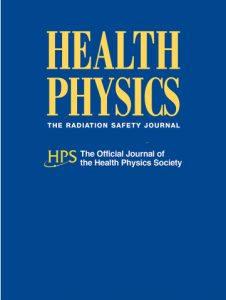My three-month-old son had a barium swallow test with fluoroscopy and I am very concerned about the amount of radiation he received during the test. The article, “Doses from Medical Radiation Sources” by Mike Stabin, gives amounts for standard x rays for babies, but not fluoroscopy. Is there a way to determine how much radiation he received and if this is harmful?
The amount of radiation that your son received is not harmful. The article you cite estimates a radiation exposure of 1.5 mSv for a standard barium swallow test with 106 seconds of fluoroscopy. This exposure is, however, typical for an adult. Pediatric exposures are much lower than adult exposures because of the size difference between an adult and a child. The amount of x rays needed to produce an image of an infant is far less than needed for an adult, so your son’s exposure would be significantly less than the above radiation dose.
For perspective on this radiation exposure, the average radiation exposure we all receive from naturally occurring radiation in the environment is 3 mSv each year.
Kent Lambert, CHP
Answer posted on 23 January 2013. The information posted on this web page is intended as general reference information only. Specific facts and circumstances may affect the applicability of concepts, materials, and information described herein. The information provided is not a substitute for professional advice and should not be relied upon in the absence of such professional advice. To the best of our knowledge, answers are correct at the time they are posted. Be advised that over time, requirements could change, new data could be made available, and Internet links could change, affecting the correctness of the answers. Answers are the professional opinions of the expert responding to each question; they do not necessarily represent the position of the Health Physics Society.






